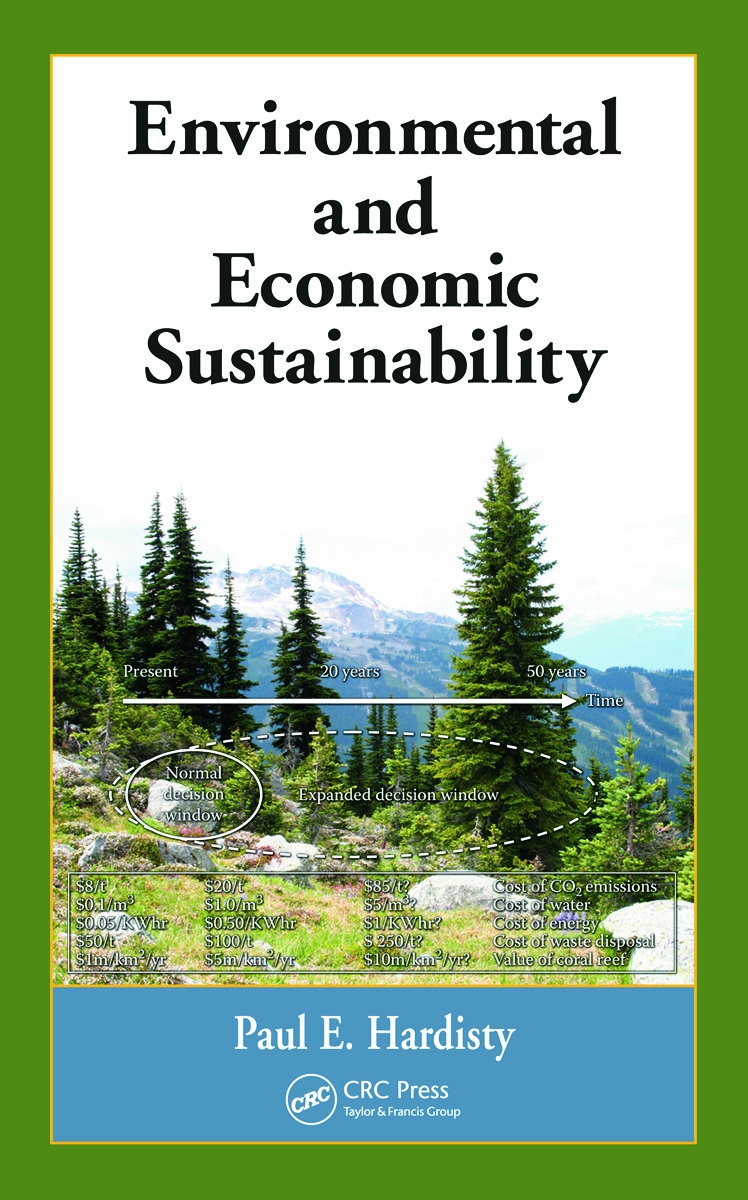Never before has the quest to balance the needs of people, the environment, and the economy been so important. While sustainability has been widely taken up by governments and business, the world has continued to move in increasingly unsustainable directions, from continued dependence on fossil energy to rising greenhouse gas emissions, and erosion of biodiversity. We know what the right thing to do is, but somehow we cannot make the changes that are needed, and so we continue with business as usual, producing business-as-usual results.
Based on more than fifteen years of research and practice, Environmental and Economic Sustainability introduces the environmental and economic sustainability assessment (EESA), a new way to make decisions that meets the challenges of the 21st century. Incorporating elements of life-cycle analysis, risk assessment, cost-benefit analysis, and comprehensive sensitivity analysis, EESA provides a fully quantitative, objective, and rational way to include all of the social, environmental, and economic issues relevant to a decision into one comprehensive analysis. The author demonstrates how to apply EESA using examples across a number of major industries, including petroleum, mining, and public utilities, and covering key issues such as water, greenhouse gases, waste, contaminated sites, and renewable energy.
Case studies
- Management of produced water in the oil and gas industry in the Middle East
- Management of wastewater in a water utility in Australia
- Power generation and carbon management in an energy utility in Australia
- Remediation of contaminated gas works in the UK
- Energy savings and carbon management in heavy oil processing
Ultimately, the solutions to problems of the 21st century will come from understanding the tremendous value that the environment provides, and reflecting












